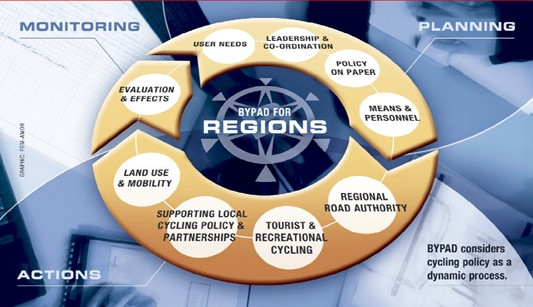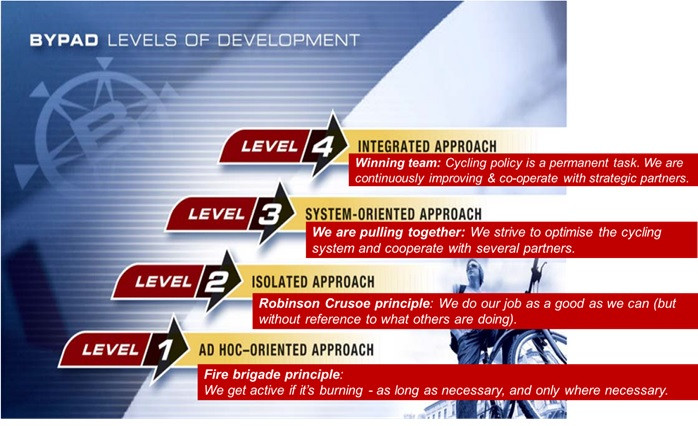The BYPAD audit consists of different modules which are part of national bicycle policies. The methodology will be based on the existing modules for BYPAD for Regions.
Trying to consider the differences between the regional and the national level the modules and the corresponding questions will be adapted. The final list of questions to be answered by the different stakeholders could look like that: 
For answering these questions the participants of the evaluation group will be provided with differnent catagories of answers reflecting the levels of development that might me applicable to their country. Starting with level 0 which means nothing is there and nobody takes care up to level 4 where everything is perfectly fine.

Example for one questions:
How are bicycle user needs taken into consideration in political decision making processes?
Level 0 = not at all
Level 1 = if they are asking for it cyclists are actively asked to provide their inputs
Level 2 = cyclists are actively asked to provide their inputs
Level 3 = regular surveys give cyclists the possiblity to give their opinion
Level 4 = cyclists (cyclists associations) are actively invovlved in decision making processes from the very beginning
In order to make it easier to get a picture of how level 4 could look like the participants will be provided with good practice examples from the Danube region and beyond. This will make it easier to assess where in the whole range of possible levels the own country would be.
Evaluation group
The evaluation group consists of:
The involvement of these stakeholder groups allows that the cycling policy is examined critically from different perspectives. It furthermore provides the basis for identifying strengths and weaknesses of the cycling policy in order to find jointly a consensus on fields where improvements are necessary and possible and to learn from each others experiences.
In many cases this evaluation group will be a sub-group of the national cycling working group (NCWG). In some cases it might even be the same groups of stakeholders then representing the NCWG.
Thanks BYPAD we want to change the way of viewing mobility in Czech towns and cities, and to overcome barriers that hinder elaboration and implementation of mobility plans in the Czech Republic.
The following steps are necessary: